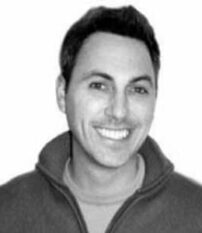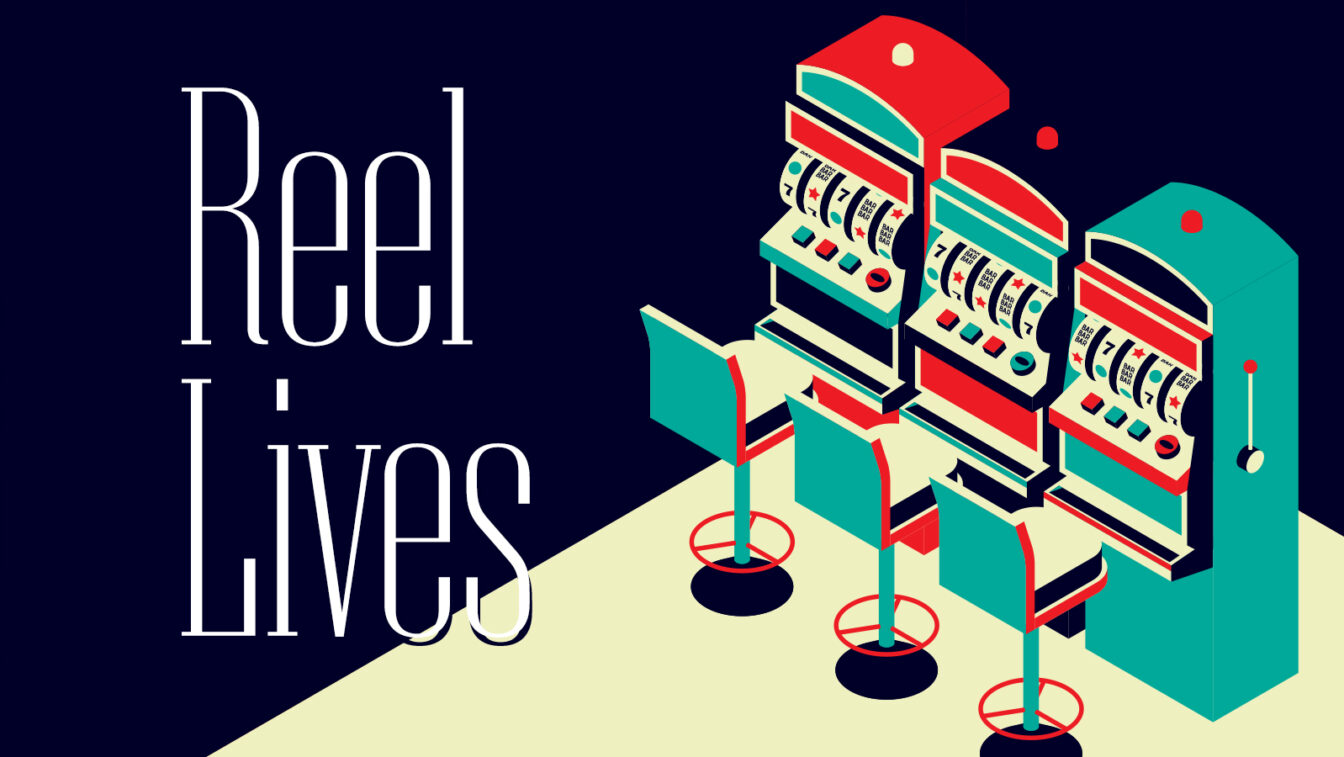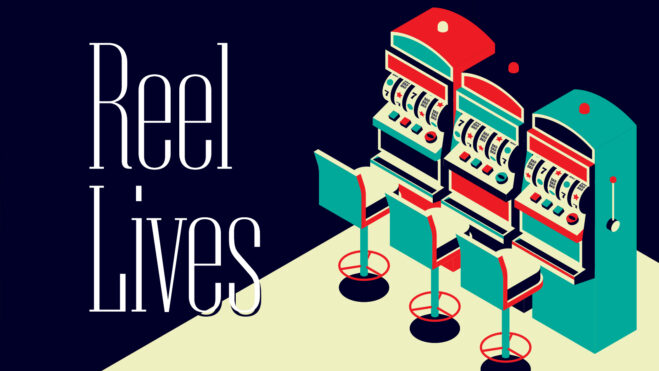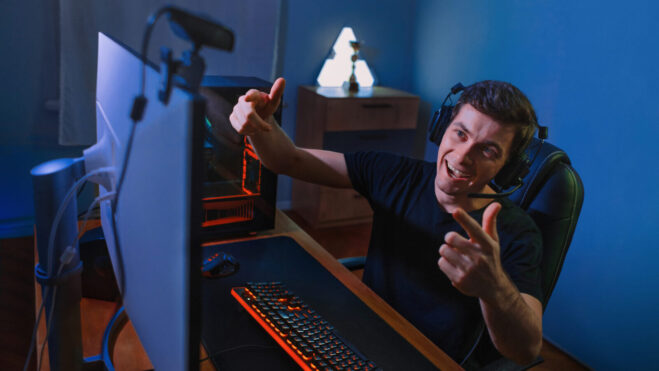Reel Lives: Gaming Media Host Matt Perrault On Bantering With A Bookmaker, State Of Sports Betting Radio, And Raising A Kid In Vegas
The co-host of ‘The Bostonian vs the Book’ talks poker, blackjack, health scares, and the Red Sox
7 min
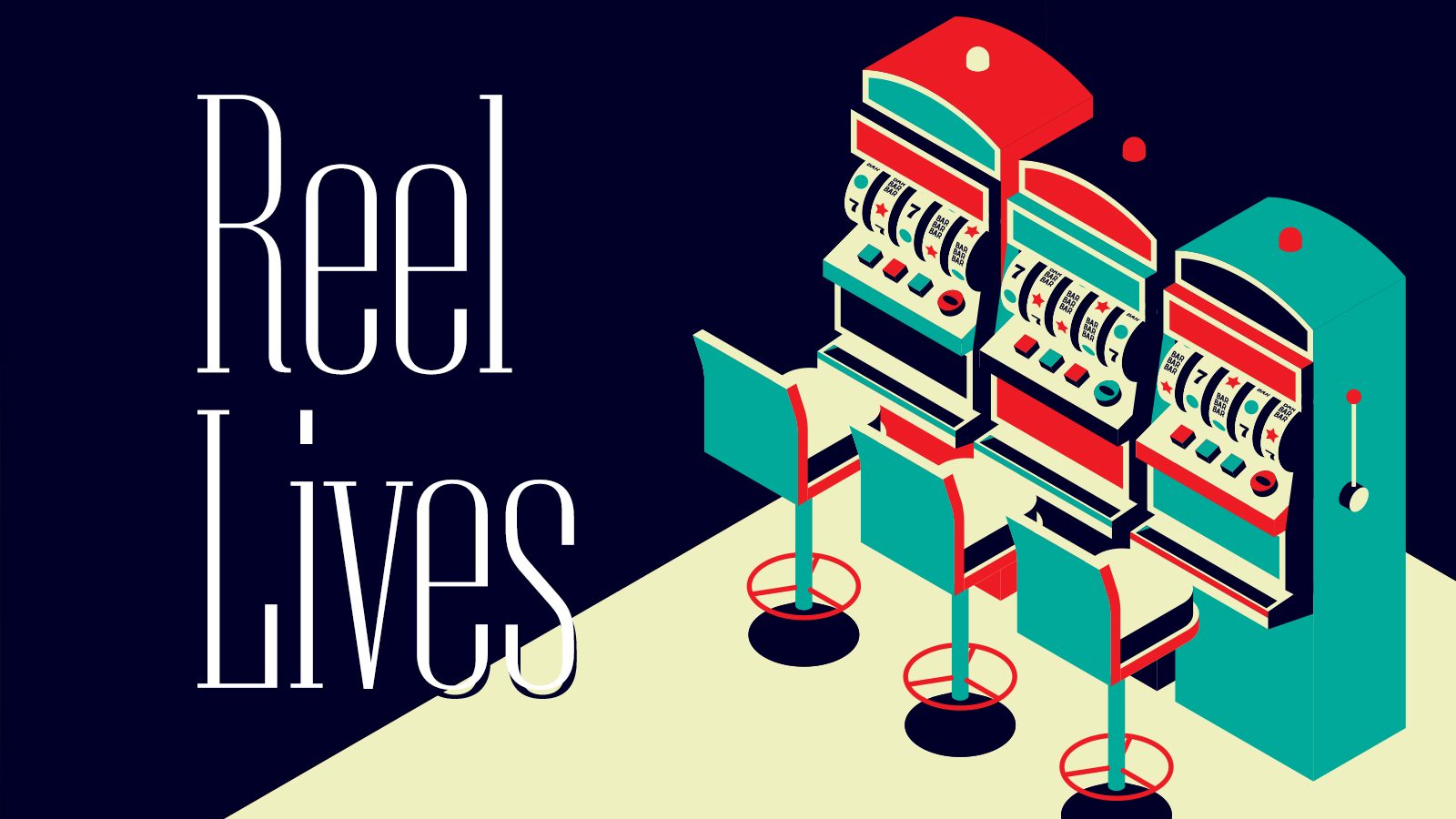
Every gambler has a story to tell. And so does every person who chooses to make a living in this unique industry.
In our “Reel Lives” series, Casino Reports shines a spotlight on people working in the gaming business, from executives, to analysts, to media members and communications pros, and all points in between.
The subject in this interview: sports talk show host, podcast host, and sports gambling content creator Matt Perrault, best known these days as the co-host, alongside Dave Sharapan, of The Bostonian vs. the Book.
Casino Reports (CR): What was the genesis of The Bostonian vs. the Book — how did you and Sharapan arrive at doing that show together? And is there a “meet-cute” story for the two of you?
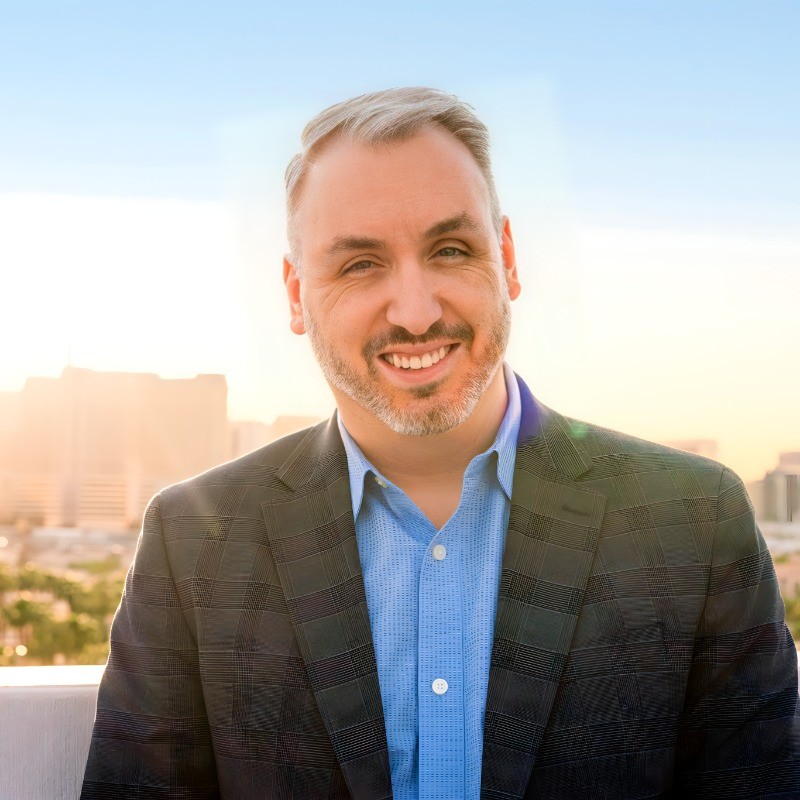
Matt Perrault (MP): Back before the pandemic, I was hosting a national radio show called Pushing the Odds for a network that was based out of Houston. They had moved me to Vegas in 2015 and my studio was in the Palms Casino sportsbook just off the Strip. Dave Sharapan was working for CG Technology, the company that was operating the sportsbook at the time. I was doing a weekly interview with a member of the risk team at CG when Dave came back from working in West Virginia.
Dave walked into my studio one day to introduce himself. We said hello, and I thought nothing of it. However, when the person I was doing the weekly hit with left, Dave jumped at the chance to do the segment. We went from one segment a week up to three segments a week due to the popularity of Dave appearing on PTO.
We thought we had something unique with my 20-plus year media experience and Dave’s 20-plus year sportsbook knowledge. So, we set off to find someone who would agree with our theory that a daily show hosted by the two of us would work.
We talked to sportsbooks and radio outlets all over the country. The books said I was a novice bettor that didn’t know enough. The radio stations all said I would run Dave over and he wasn’t a strong enough host. Chris Grove, then of American Affiliate, disagreed and, before I could get halfway through my pitch for the show, green-lit BvB in October of 2021. He signed both of us to start the show in December of 2021. We’ve now done over 700 shows. We’ve broadcasted live from the Super Bowl, The Breeders’ Cup, Chicago, and, hopefully, even more cities in 2025.
CR: What’s been the biggest challenge of BvB that you didn’t see coming when you started?
MP: We did not anticipate being on our own and the amount of pressure that comes with being an independent, unaffliated show. When we signed on, Dave and I both signed two-year contracts, but after just one year, BvB was given a choice: We could either pack up the show and move on to other things or we could go off and run the show our own. If we picked the latter, there was no guarantee of income. No benefits. No list of sponsors who had funded the show in the past. Dave and I had to do the operation entirely ourselves.
I’ve sold media my entire career, so I thought I was prepared for the work. However, as the industry shrinks and advertising dollars are harder to come by, we must continue to show potential advertisers the unique marketing opportunity that BvB presents. It’s why we are so thankful for our audience, called “The Brigade.” They are the reason the show still exists today.
CR: You’ve been hosting sports betting radio shows and podcasts since before PASPA was overturned. What’s your overall take on the direction sports betting media has gone these last 6½ years?
MP: When I started Pushing the Odds, it was because I saw what was coming and I wanted to be a full-time participant. I made my first bet with my grandfather at Rockingham Park in New Hampshire and had being doing sports betting content in Alabama, Nebraska, Iowa, Texas, and New England on the radio. I knew it would be big.
But I wonder why those doing sports betting content didn’t learn the lessons from the DFS boom: The content, at the end of the day, has to be good. You can’t just throw a show on the air and expect to drive handle. The audience is smart and is interested in sports betting, but I feel like advertisers have been turned off because the majority of the content being produced over the past five years wasn’t good enough to hold the attention of the public. If we don’t fund quality sports betting content, the future will look a lot like DFS content does now, with one or two segments on established shows hosted by people who don’t have a real interest in sports betting.
CR: You have a young daughter. Is it tough raising a kid in Vegas? And has she shown any curiosity about the world of gambling?
MP: People in New England, where I’m from, ask me all the time about raising my daughter around the world of gambling, and frankly, I love that she is being raised in Vegas. No, I don’t think it’s hard to raise a kid in Vegas as long as you aren’t hiding the reality of the market from them. When a kid is raised around betting, they aren’t fooled by anything. My daughter is 10 and is well aware of the dangers of gambling and the damage it can do, but she also understands the industry and how it’s the lifeblood of the market. The Vegas Strip and the characters that are attracted to it desensitizes her to being shocked by anything. I took her Times Square at the end of 2023, and her reaction was, “That’s it?”
CR: Let’s go back in time. How old were you when you first decided you wanted to be in sports media, and how did you first get your foot in the door?
MP: In high school, I wanted to be a DJ. Not the kind you see in Vegas today, but the on-air disc jockey that played music on the radio. I was obsessed with music and concerts and wanted to be a part of the music industry. I interned at a station in Boston one summer in college and the music director there told me that music radio would not be around long term. She said syndication would kill the jobs in most market. And she was right.
I went back to UMass that fall and decided to go into sports instead. I did two years of play-by-play and sales for the UMass women’s basketball team and was hired for the same job at the University of Virginia after I graduated. Much like the sports betting content wave, I saw sports talk radio exploding around the country in 1999 and applied for a sports talk job in Huntsville, Alabama. I was hired by the same man who started the career of Sean Hannity and numerous other high-profile talk radio professionals. I spent five years in Alabama learning the craft in what I called “Radio Bootcamp.” A Boston guy, in his 20s, living in the Deep South. I learned so much over those five years that I still use today.
CR: I understand you’ve been struggling with migraines of late. Just how debilitating has it been, and how are you doing on that front currently?
MP: At the end of 2024, my health took a turn in a very unexpected way. It happened over the course of three months where things spiraled. I woke up one night without the ability to move half my body. I spent a night in the hospital and the initial diagnosis was a TIA or mini-stroke. However, the very next week, I was back in the ER with the same condition. The docs changed the diagnosis to a complex migraine, something that mimics a stroke. I’ve been on a new medication, and so far, I haven’t had any recurring issues. It was really scary and I’m not completely out of the woods yet, but I hope 2025 is better on that front.
CR: What’s either the greatest bet you ever placed or the craziest sweat you ever had?
MP: The best bet I ever made isn’t actually a bet but rather a betting accomplishment. When I was working in Omaha, I was paid $250 to play in a World Series of Poker satellite event. The winner of the 1,000-person event would get a seat in Vegas at the WSOP and $1,000. Second place would win $5,000.
I had never played poker in-person in my life, but I went in like I knew what I was doing. I had sunglasses and headphones on like I saw on TV. I went all-in with a pair of 2s and got the trips on the river to knock out five competitors. I played poker for eight hours that day and made the final table.
Ultimately, it was just me versus a kid whose dream it was to play in the WSOP. Turns out, he listened to my radio show religiously and when I told him who I was, he was totally thrown off his game. I beat him in three hands to win the seat. I told him I had no interest in going and just wanted to the money. He took the seat. I took $6,000. I then played five hands of blackjack at $100 a hand. I won them all. I’ve never been that hot on the tables since.
Reel fast!
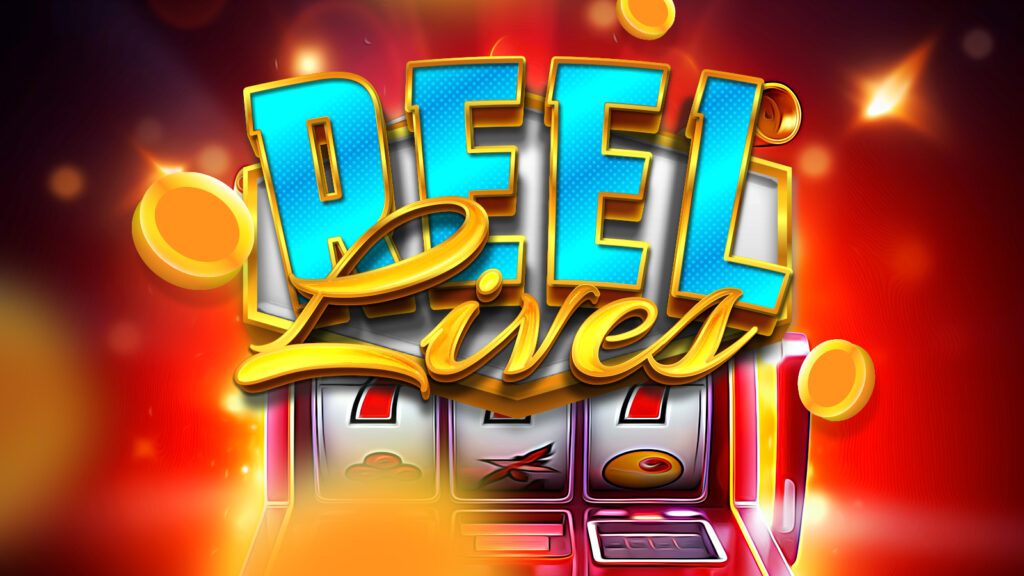
Other than sports betting, what’s your favorite form of gambling to indulge in?
Blackjack.
Fill in the blank: I love Dave Sharapan, but I wish he wouldn’t [blank] so damn much.
Rap on air.
All-time favorite Boston sports championship?
2004 Red Sox.
What’s your TV guilty pleasure?
Currently, Outer Banks on Netflix.
Who’s your favorite sports broadcasting personality to listen to?
Chris Russo. He showed me fast talkers can work in media.
Not to go dark on you, but … death row, last meal, what are you requesting?
Tomahawk steak and lobster.
Someone hands you $100, you have to put it all on one space on the roulette wheel. Where’s it going?
The number 4. I was born on 4/4.
—
You can find Matt on Twitter/X, BlueSky, and LinkedIn. And, yes, The Brigade is still accepting membership applications.
Previous installments of Reel Lives:
Gina Fiore On Gambling, Writing, Starring In A Documentary, And Explaining Her Job To Her Son
